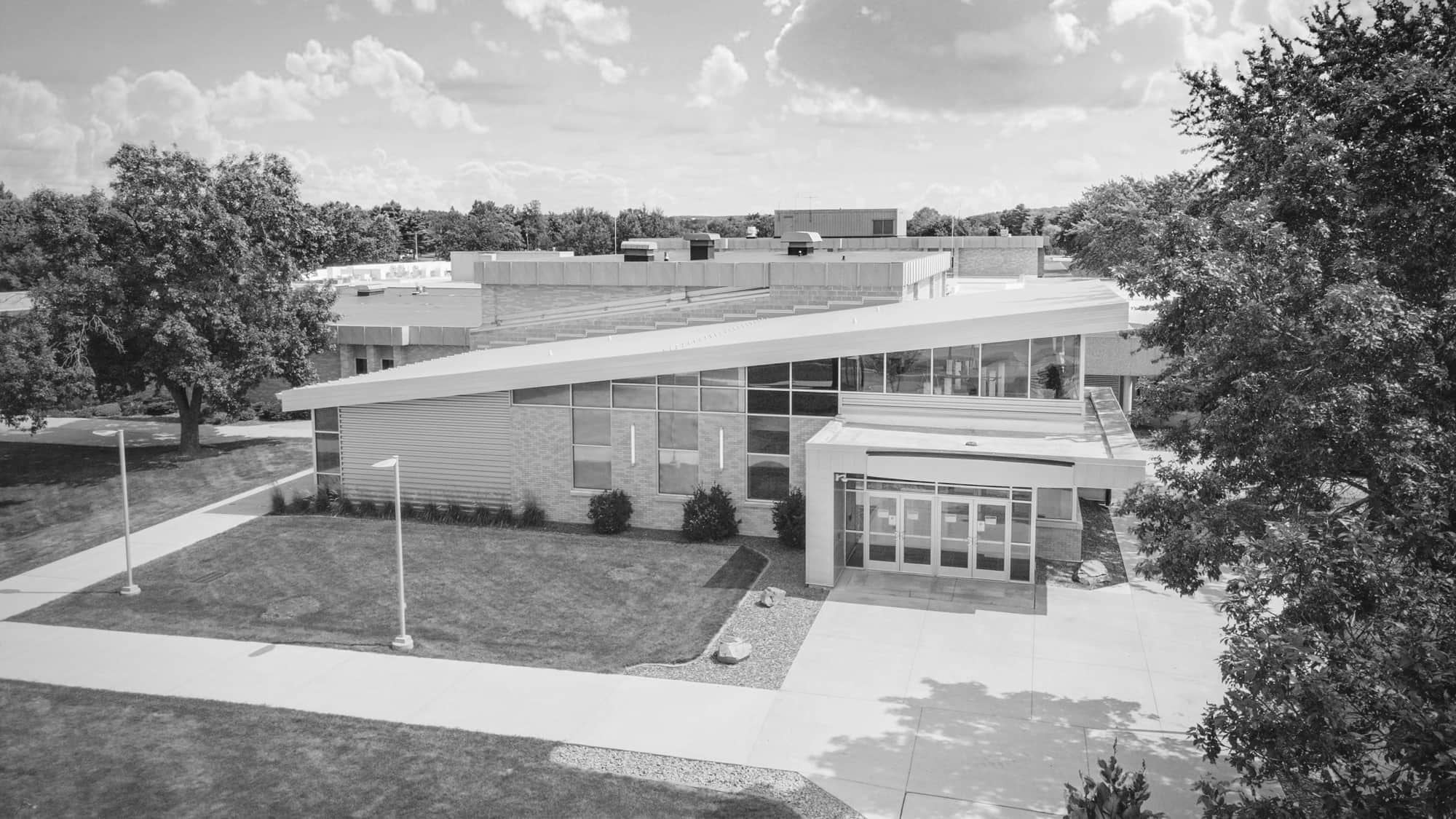Substance Use Disorder Counseling
64 Credit Associate DegreeProgram Description
Through classroom, laboratory and internship experience, you’ll develop skills in counseling, diagnosis, treatment planning, group facilitation and crisis management. You’ll also learn how to respect clients' rights and understand the complexity of addiction illnesses. This degree prepares you for entry-level work in licensed SUD facilities such as clinics, hospitals and community residential facilities, as well as correctional facilities, employee or student assistance programs, and various community and social service agencies. Potential employment includes: substance use disorder counseling, correctional facilities, employee and student assistance programs, and various community and social service agencies. Graduates are eligible for licensure in Wisconsin as Substance Abuse Counselors-In Training, qualifying for entry-level employment in a rewarding career.
This program may require a Criminal Background Check and/or Health Record
Acceptance to Northcentral Technical College will not be denied based on a criminal background or health record.
Found in These Career Fields:
Approximate Program Cost
Books & Supplies: $638
Starting Salary
Financial Aid
Available
Program Overview Video
Detailed Program Information
Availability
Courses for this program may be available at a variety of campus locations through multiple modes of delivery if you meet the admission requirements and prerequisites.
* Campus and online availability of courses and programs may be subject to change.
Outcomes
Graduates will be able to…
Careers
Some of the potential careers graduates can pursue are:
Courses
The Substance Use Disorder Counseling Associate Degree is a 64 Credit program. The following is a typical semester breakdown of the courses within the program.
Credit for Prior Learning Available
* College 101 (10-890-165) is not part of the program credit requirements but is a College Requirement for graduation that must be passed with a “C” or better.
View All Detailed Course Information
Artificial Intelligence (AI)
We are now integrating artificial intelligence into every academic discipline, ensuring students are prepared for the evolving demands of their industries.
Learn more about Our Commitment to AI Integration
Pathways
Pathways at NTC are designed to help you progress toward your career and education goals, one step at a time. Many programs are structured to build upon each other, allowing you to earn valuable credentials along the way.
If you begin with one of the following programs, you will earn credit towards this Substance Use Disorder Counseling Associate Degree:
The Substance Abuse Education Technical Diploma will provide you with 39% (25 of 64 credits) of the total credits in this Substance Use Disorder Counseling Associate Degree
The Human Services Assistant Technical Diploma will provide you with 44% (28 of 64 credits) of the total credits in this Substance Use Disorder Counseling Associate Degree
The Counseling Skills in the Helping Profession Certificate will provide you with 23% (15 of 64 credits) of the total credits in this Substance Use Disorder Counseling Associate Degree
Transfer Information
You can continue your education to earn a four-year degree in a variety of ways.
Program Transfer
The following transfer guides, executed in partnership with post-secondary institutions, are based on agreements that allow you to continue your program at another college.
Ottawa University
UW Oshkosh
UW Superior
General Transfer
All associate degrees transfer to a variety of programs at other partner colleges to give you the opportunity to continue your education in other areas of study.
View all transfer guides
Cost of Attendance
2025–2026 Estimated Academic Year Budgeted Cost of Attendance
The estimated Cost of Attendance (COA) is a budget that includes categories of expenses that a student can expect to incur while attending college. The COA does not reflect actual charges. It is an average based on the estimated living costs typical of our region. In determining the cost of attendance, Northcentral Technical College uses the budget established by the Wisconsin Technical College System (WTCS) Financial Aid Budget Work Group. This budget is used to determine financial need for all students who apply for financial aid. A student’s cost of attendance is composed of all educational expenses that can be included for financial aid purposes that a student may accrue while pursuing their education for the year (or semester, if enrolled less than a year). A student’s financial aid cannot exceed their cost of attendance. Schools are required to provide a fuller picture of what it may cost students to pursue their degree, not just what they will owe in tuition/fees and books/supplies.
| Expenses | Student Living With Parents (Home) | Student Living on Own (Other) | ||
|---|---|---|---|---|
| Full-time Tuition (based on a total of 30 credits, 15 credits fall and 15 credits spring) |
|
|
|
|
| Living Expenses (Housing & Food) | $3,182 | $10,305 | ||
| Books / Supplies | $1,463 | $1,463 | ||
| Transportation | $4,103 | $4,103 | ||
| Personal Expenses | $3,065 | $3,065 | ||
| Loan Fees | $85 | $85 | ||
| Professional Licensure / Certification | $135† | $135† | ||
| Total Estimated Cost Of Attendance |
|
|
|
|
* Tuition listed is based on approved rates for the 2025–2026 academic year. Rates are approved each March by the Wisconsin Technical College System Board and estimated budgets are updated at that time.
For the 2025–2026 academic year, the Wisconsin Resident tuition rate is $152.85 per credit plus a minimum $5.00 material fee and $13.44 per credit activity fee. Out-of-State resident tuition is $229.28 per credit plus a minimum $5.00 material fee and $13.44 per credit activity fee.
Students awarded Federal Direct Loan(s) also have an average of the mandatory loan fees automatically added to their COA.
Students with disability-related expenses may contact the Financial Aid Office to have their additional expenses considered. Disability-related expenses include but are not limited to: personal assistance, equipment, and supplies. The Financial Aid Office may potentially include disability expenses in the COA that are not provided by other assisting agencies.
† Initial Credentialing Fee for SAC-IT License: $60 (incurred during end of second year), Wisconsin Statutes and Rules Examination: $75 (incurred during end of second year).
NTC also offers a Net Price Calculator to help estimate costs.
For more information regarding billed tuition and fees visit https://www.ntc.edu/admissions/tuition-fees
We’re happy to answer any questions you may have about how the financial aid process works. Please feel free to reach out for more information.
-
NTC Financial Aid Office
- 715.803.1647
- financialaid@ntc.edu
Additional Information
Field Experience/Internship Sites
Locally located internship sites cannot be guaranteed. Students may have to move or drive a distance in order to complete internship courses. Scheduled internship attendance days and times for which students must be available vary by agency. Program faculty select, assign, and maintain college contracts with internship sites.
Graduates
Graduates of the program will have the approved education required by the Wisconsin Department of Safety and Professional Services for the Substance Abuse Counselor In Training credential as well as the Substance Abuse Counselor credential.
Licensure/Certification Information
NTC’s Substance Use Disorder Counseling Associate Degree is designed to meet the State of Wisconsin's licensing criteria. However, NTC has not made a determination whether this program meets licensure requirements in states other than Wisconsin. Students who may be seeking professional licensure or certification in states other than Wisconsin should contact the appropriate licensing board in that state to verify that the NTC program meets licensure or certification requirements.
Admissions Process
Our application process takes just a few minutes to complete, but we want to make sure you have the things you’ll need on hand to complete the application. We’re here to help if you have any questions while submitting your application.
Before you apply, you should know
- This program may require a Criminal Background Check and/or Health Record. Acceptance to Northcentral Technical College will not be denied based on a criminal background or health record, however, a check may be required for placement at clinical sites or field experiences.
- Professional Conduct Statement: Students in the Human Services and Substance Use Disorder Counseling programs are expected to demonstrate professional behavior, including maintaining a lifestyle free from the misuse of alcohol and other drugs. It is highly recommended that students be free from ongoing legal or substance-use-related issues. As future professionals working with vulnerable populations, students serve as role models and are expected to uphold the ethical standards of the profession.
- Conviction Record Consideration: To determine whether a conviction record may affect your eligibility for credentialing, it is recommended that you complete the Convictions and Pending Charges Form (#2252) through the Wisconsin Department of Safety and Professional Services (DSPS).
Fill out our application
The application can be submitted online and takes just a few minutes to complete. There is no fee to apply.
Apply NowThen, submit one of the following
Documentation can be sent via email to admissions@ntc.edu, via mail, addressed to: Northcentral Technical College, ATTN: Admissions, 1000 W. Campus Drive, Wausau, WI 54401, or delivered in person to any NTC campus.
- High school transcript indicating a cumulative GPA of 2.5 or above. Contact the high school you attended if you do not have a copy of your transcript.
- ACT composite score of 16 or above. Request an ACT College Report from ACT or contact the high school you graduated from if you do not have a copy on hand.
- Accuplacer scores. Score requirements vary by program and version of the Accuplacer test that was taken. For more details, please contact Admissions. If you did not take the Accuplacer at NTC, contact the college at which you took it to obtain a copy of your scores.
- College transcript indicating a cumulative GPA of 2.5 over a minimum of 12 credits, earned at a single college.
If you do not meet any one of the above criteria, don’t worry, complete the application anyway and we will contact you to discuss your options.
What’s Next?
We’ll review your application and let you know if we need anything else. If you’re all set, your acceptance letter will be emailed to you.

